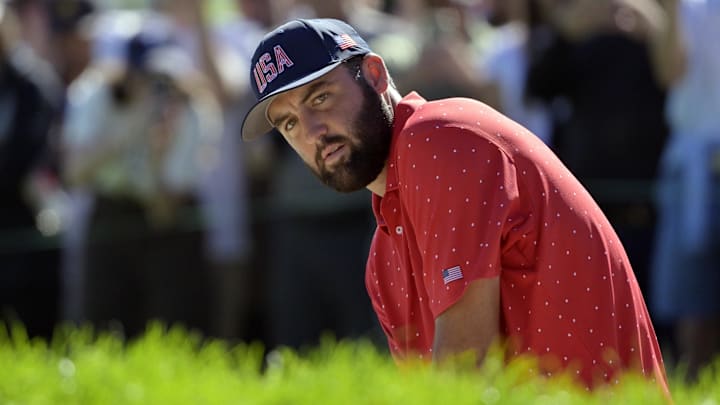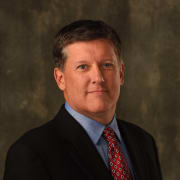Scottie Scheffler, Justin Thomas Understand the ‘Touchy Subject’ of Ryder Cup Money

NASSAU, Bahamas — Scottie Scheffler earned more than $50 million this year in official prize money and bonuses while winning seven times on the PGA Tour.
So the idea that he needs to be paid to play in the Ryder Cup obviously seems absurd.
Scheffler understands that thinking and even said that the amount of money he plays for is beyond comprehension.
And yet, the Ryder Cup pay story has legs, furthered by an unconfirmed Telegraph report last month that U.S. players would be paid $400,000 each for next year’s event at Bethpage Black.
U.S. captain Keegan Bradley denied Wednesday that anything has been decided but the PGA of America has not commented.
“I think every one of our players would pay to play in the Ryder Cup if that's what was asked of us,” Scheffler said Wednesday at the Albany Resort, where he defends his Hero World Challenge title. “I think it’s a little bit silly for a tournament that makes hundreds of millions of dollars to ask for the players to pay as well, but I think we all would. I definitely would.
“I never played golf for money, I played golf because I love the game, I love competition.”
Scheffler hit on an important point that seems to be the basis of the pay-for-play narrative: the Ryder Cup is a huge moneymaker. The players are the biggest part of the event’s success. And yet, from a long policy of giving the players $200,000 to earmark for charity, they compete in a very intense event for free.
The issue dates to the 1999 Ryder Cup and has seen plenty of controversy associated with it. At that point, the PGA of America initiated the donation system, one that the Telegraph recently reported would be changed to a direct payment.
At last year’s Ryder Cup in Rome, the U.S. team found itself embroiled in controversy as Patrick Cantlay went without a hat, allegedly in protest over not being paid.
Cantlay denied it and Justin Thomas came to his defense on Wednesday.
“I’ve played teams and I've known Pat for a long time and he doesn't—I mean, sorry, Pat, he's got a weird-shaped head, that's why he doesn't wear a hat,” Thomas said. “You can talk to any team, the Presidents Cup, he went through it, he had a hard time finding a hat that fit his head. When you go to a tournament that you don't have to wear a hat, that's why he didn't wear one. It’s so funny, we all talked about that and joked about that, how big of a deal was made. It’s literally not the reason why he didn’t wear a hat. But why let facts get in the way of a good story.”
It was pointed out to Thomas, however, that Xander Schauffele’s father, Stefan, was outspoken on the issue in several forums last year. He made note of the immense sums earned and the lack of transparency, while also suggesting more funds could be directed to charity.
“I understand, it's a weird, touchy subject and you’re kind of damned if you do, damned if you don’t,” Thomas said. “Obviously all of us would play if we weren't compensated. We have been ... it obviously generates a lot of revenue. This is why I play golf.”
Thomas used the name, image and likeness issue that is now part of college sports as a similar example. Those athletes are now being compensated because they ultimately are ones generating substantial sums for universities.
“You have people on both sides,” Thomas said.
“As far as I’m concerned, I think all of us on the American side are more than willing to play in the Ryder Cup for free,” Scheffler said. “We’ve been playing in the Ryder Cup for free for a long time. If they want to pay us to play in the tournament, that’s great. I mean, as far as how much or what it should be, the tournament seems to make a good amount of money. And it’s funny, I feel like a lot of the time in the golf media people are trying to talk less and less about money, but every week I sit here and get asked about money so you can’t really have both there.
“As far as I’m concerned, if somebody has a problem with us getting paid ... I don’t have a problem with it at all. They’ve given us some money that we can give to charity, and if someone doesn’t want to take the money for themselves or if you want to give to charity, do whatever, but I don't think there’s any problem with guys getting paid to play in the Ryder Cup. I don’t think it takes away from the competition at all.”
Scheffler added: “If we’re getting paid to play—should we be getting paid the money we get paid to play in these tournaments now? We get paid pretty dang well to play in golf tournaments. I want to win just as bad for zero dollars as I do for whatever millions of dollars it is. The money’s not my motivation, it’s not something I think about, it’s just a bonus that happens when you’re out here playing tournaments. It’s a very nice thing to have.”
